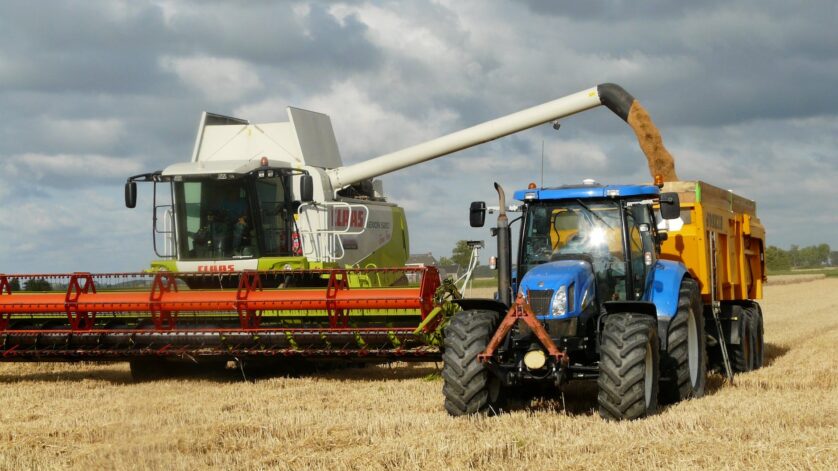In today’s rapidly changing world, sustainable agriculture and food security have become crucial topics of discussion. As the global population continues to grow and resources become scarcer, it is imperative that we develop sustainable practices to ensure the availability of food for future generations. In this article, we will delve into the various aspects of sustainable agriculture and how it contributes to food security. So let’s begin our exploration of this vital subject!
What is Sustainable Agriculture?
Sustainable agriculture refers to the practice of producing food, fiber, and other agricultural products while preserving the environment, maintaining ecological balance, and promoting the well-being of farmers and rural communities. It is an approach that seeks to meet the present needs of food production without compromising the ability of future generations to meet their own needs.
The Principles of Sustainable Agriculture
- Environmental Stewardship: Sustainable agriculture aims to protect and enhance the natural resources, such as soil, water, and biodiversity, on which agriculture depends. It emphasizes the use of practices that minimize negative environmental impacts, such as soil erosion, water pollution, and the use of harmful chemicals.
- Economic Viability: Sustainable agriculture recognizes the importance of economic viability for farmers and rural communities. It promotes fair trade, encourages local markets, and supports small-scale farmers by providing them with access to resources, education, and technology.
- Social Equity: Sustainable agriculture strives to create a socially just and equitable food system. It focuses on improving the livelihoods of farmers, farm workers, and rural communities, ensuring their rights and well-being are protected.
Practices and Techniques in Sustainable Agriculture
Sustainable agriculture encompasses a wide range of practices and techniques that contribute to its overall objectives. Here are some key approaches commonly employed:
1. Organic Farming
Organic farming eliminates the use of synthetic fertilizers, pesticides, and genetically modified organisms (GMOs). Instead, it relies on natural methods such as crop rotation, composting, and biological pest control. Organic farming promotes soil health, biodiversity, and reduces chemical contamination in food.
2. Agroforestry
Agroforestry combines the cultivation of trees with agricultural crops or livestock. This practice enhances biodiversity, improves soil fertility, conserves water, and provides additional sources of income for farmers.
3. Precision Farming
Precision farming involves the use of technology, such as GPS and remote sensing, to optimize the use of resources. By precisely applying fertilizers, water, and other inputs, farmers can reduce waste, increase efficiency, and minimize environmental impacts.
4. Conservation Agriculture
Conservation agriculture emphasizes minimum soil disturbance, permanent soil cover, and crop rotation. These practices enhance soil health, reduce erosion, improve water retention, and conserve biodiversity.
The Link Between Sustainable Agriculture and Food Security
Now that we understand the principles and practices of sustainable agriculture, let’s explore how it contributes to food security.
Environmental Resilience
Sustainable agricultural practices help build environmental resilience by preserving soil fertility, conserving water resources, and protecting biodiversity. By maintaining healthy soils and reducing erosion, sustainable agriculture ensures the long-term productivity of agricultural land. This resilience is crucial for ensuring a stable and consistent food supply, especially in the face of climate change and unpredictable weather patterns.
Diversification of Food Production
Sustainable agriculture encourages diversification in food production. Instead of relying heavily on monocultures, sustainable farmers promote crop rotation, agroforestry, and the cultivation of a variety of crops. This diversification helps mitigate the risks associated with pests, diseases, and market fluctuations. It also enhances food security by providing a wider range of nutritious and culturally diverse food options.
Support for Local Communities
Sustainable agriculture focuses on supporting local communities and small-scale farmers. By promoting local markets, direct trade, and fair prices, sustainable agriculture helps strengthen local food systems. This reduces dependency on distant supply chains, enhances food sovereignty, and supports the economic well-being of rural communities. When communities have access to nutritious and affordable food, food security improves.
Conservation of Natural Resources
Sustainable agriculture plays a vital role in conserving natural resources. Practices such as water-efficient irrigation, agroforestry, and organic farming help reduce water usage, protect biodiversity, and minimize pollution. By safeguarding these resources, sustainable agriculture ensures their availability for future generations, thereby contributing to long-term food security.
Conclusion
In conclusion, sustainable agriculture is an essential component of ensuring food security for our planet. By adopting environmentally friendly practices, supporting local communities, and conserving natural resources, we can build a resilient and sustainable food system. It is imperative that we prioritize sustainable agriculture to meet the challenges of a growing population, changing climate, and diminishing resources. Let us embrace the principles and practices of sustainable agriculture to secure a better future for all.
Discover more from THE KENYAN JOB FINDER
Subscribe to get the latest posts sent to your email.
